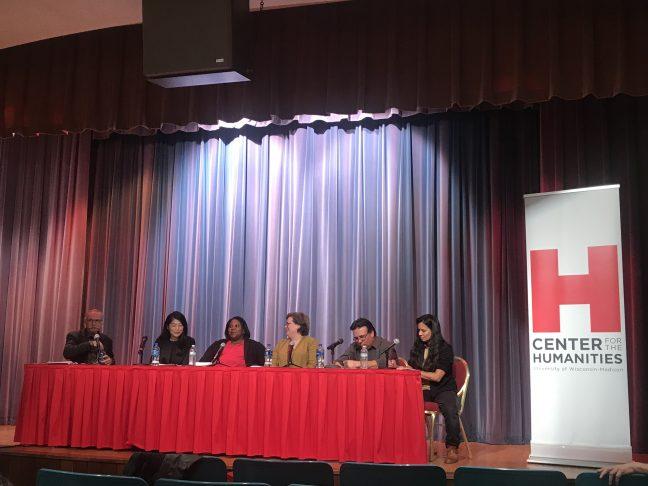University of Wisconsin scholars and experts discussed immigration, citizenship and the economy in a panel called “What Makes America Great? Immigration, Citizenship and the Wisconsin Economy” at the Wisconsin Historical Society Monday.
Sarah Lloyd, special projects coordinator of the Wisconsin Farmers Union, said Wisconsin farmers had a long history of employing immigrant workers. These workers played a critical role in the agricultural sector in Wisconsin — especially the dairy industry.
“People are self-policing and not going out to buy food and not wanting to be involved in their communities,” Lloyd said. “Here you have workers and families that may have worked on the same farms for 10, 12, 15 years and their children may have been born here — and suddenly they are not comfortable going to the school activities.”
Lloyd said the concern of possible deportation not only affected immigrant workers in the agricultural industry, but the rural community as a whole.
UW history professor Cindy Cheng said immigrants should not be denied employment opportunities because of their immigrant identities.
“It is a fundamental right for everyone to work, and immigration status should not be used to determine our livelihood,” Cheng said.
Cheng added starvation and deprivation to earn a living is an inhumane way of controlling immigration. Cheng said that America can find better ways of regulating immigration without forcing them to give up their means of living.
UW Afro-American studies professor Christy Clark-Pujara said many undocumented students on campus or students with undocumented family members or friends were often too afraid to go to classes.
“They were terrified to be here, doing what they were supposed to do, which is focusing on their studies,” Clark-Pujara said. “This is a web that doesn’t just affect people who don’t have those right papers, it goes way beyond that.”
Clark-Pujara, an expert on 18th and 19th century America, said the fear students were experiencing reminded her of the fear of fugitive slaves.
Clark-Pujara also discussed issues of race in Wisconsin and the larger nation. She referred to Wisconsin’s first constitution, which listed voting rights as restricted to white adult men.
“Race was at the center of the founding of this nation and it has always been,” Clark-Pujara said. “In Wisconsin, race was at the heart of citizenship at our founding.”


